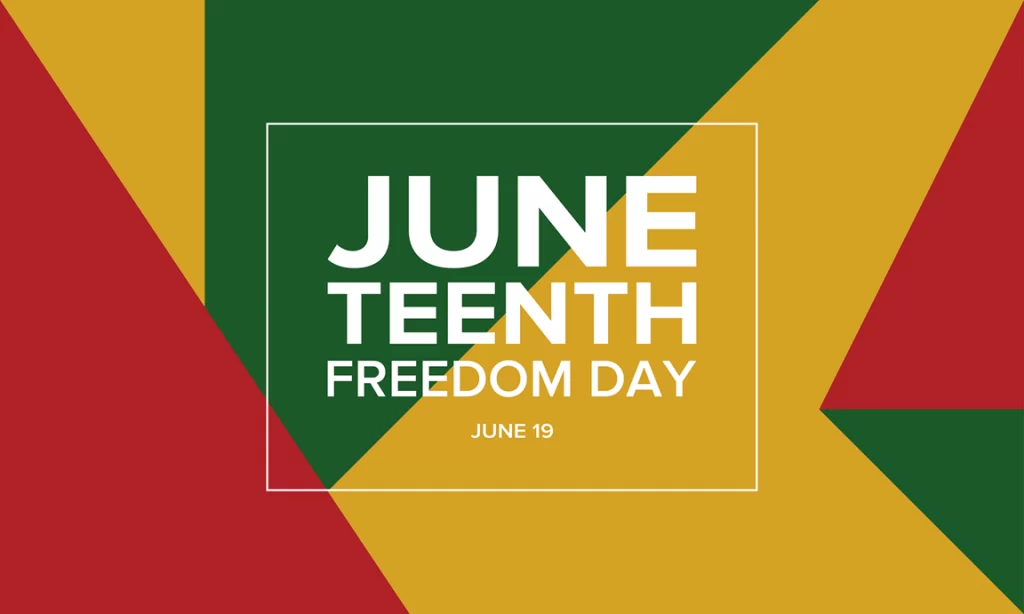Juneteenth – June 19 – marks the day enslaved African Americans in west Texas learned of their freedom. It is the oldest of all African American celebrations.
It was June 19, 1865 in Galveston, Texas when Union Army General Gordon Granger read General Order Number 3 declaring, “The people of Texas are informed that in accordance with a Proclamation from the Executive of the United States, all slaves are free” and “the connection (between former master and slave) becomes that between employer and hired labor.” The enslaved African Americans in West Texas were the last to learn of their freedom as granted in the Emancipation Proclamation two and a half years earlier.
Celebrations of Juneteenth – also known as Freedom Day or Emancipation Day – began a year later in Texas and quickly spread to surrounding states. Commemorations waned during the Jim Crow era but resumed in the Civil Rights era of the1950s and 1960s. Although many celebrations will be virtual this year, the numbers are increasing in 2020 and are often including calls and actions to end racism. The District of Columbia and 47 states recognize Juneteenth, although few designate it as a legal holiday. Increasingly, businesses are closing on Juneteenth. The General Board of Church and Society announced on June 18 that it would make Juneteenth a paid holiday for all employees.
Over the years, celebrations have included parades, picnics, dancing, sporting events, music, plays, recounting of stories by former slaves, inspirational speeches, reading of the Emancipation Proclamation and prayer services. Churches have long been in the forefront of celebrating Juneteenth for a day, a week or the entire month.
While Juneteenth is first a celebration by African Americans of an event that occurred more than 150 years ago, it is a day this year for all United Methodists to become part of an initiative for “Dismantling Racism: Pressing on to Freedom.”
Other observances this year by United Methodists will include a “Day of Remembrance” service at Clark Memorial United Methodist Church in Nashville, Tennessee, a “Rally of Remembrance” in which Floris United Methodist Church in Herndon, Virginia will participate and “a celebration of the commitment to make (emancipation) real” at The Place CLT, a United Methodist congregation in Charlotte, North Carolina. The Baltimore-Washington Conference is hosting the Juneteenth Freedom and Justice March and Action in Washington, D.C.
Discipleship Ministries says, “A word of explanation and celebration of Juneteenth would be an appropriate part of any worship service around June 19” and provides these worship resources.
Appropriate songs include:
- “Freedom Is Coming” (The Faith We Sing, 2192)
- “O, Freedom” (The Faith We Sing, 2194)
- “Siyahamba” (The Faith We Sing, 2235)
- “Goodness Is Stronger than Evil” (The Faith We Sing, 2219; Upper Room Worshipbook, 436)
- “Lift Every Voice and Sing” (The United Methodist Hymnal, 519)
- “We Shall Overcome” (The United Methodist Hymnal, 533)
To learn more:
- Juneteenth
- Juneteenth, Discipleship Ministries
- Celebrating Juneteenth, United Methodist Women
- What is Juneteenth?, Wesley Brothers
The Rev. Kathy Noble is editorial manager with the leader communications team at United Methodist Communications, Nashville, Tennessee, USA. Leader communications produces and aggregates content for ResourceUMC.org, The Source e-newletter and other resources for leaders throughout The United Methodist Church.

